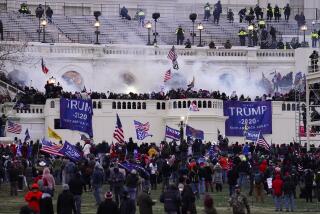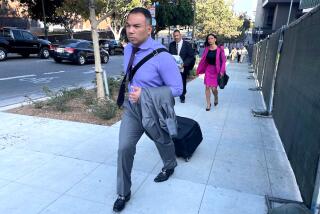Controversial 1970 Anti-Racketeering Law Used by U.S. to Charge Mafia Chieftains
- Share via
NEW YORK — The law under which the reputed leaders of organized crime were indicted Tuesday was enacted in 1970 to give federal prosecutors a tool for prosecuting mobsters who infiltrate legitimate business.
But the law--the Racketeer Influenced and Corrupt Organizations Act, or RICO--has had wider applications both in criminal and civil cases and has come under fire from the business community, which maintains its objectives are being perverted.
In addition to a number of Mafia prosecutions, RICO has been used against international drug traffickers, foreign coup organizers, terrorists and complex white-collar frauds.
In New York earlier this week, it was used to arrest 25 members of one of the city’s largest Chinatown gangs under an indictment accusing them of murder, extortion, kidnaping and robbery.
In civil cases, the law has been used by plaintiffs to label such businesses as American Express Co., E. F. Hutton & Co. and Lloyd’s of London as “racketeers.”
RICO makes it a crime for anyone in interstate or foreign commerce to participate in a pattern of racketeering. This is defined as two or more acts from a long list of crimes forbidden by state laws and by federal mail- and wire-fraud laws. The law allows persons injured by criminal violations of the act to sue for triple damages and lawyers’ fees.
More to Read
Sign up for Essential California
The most important California stories and recommendations in your inbox every morning.
You may occasionally receive promotional content from the Los Angeles Times.













